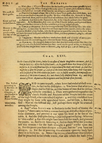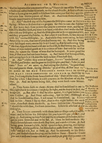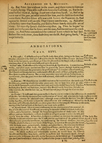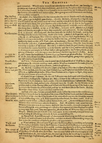To the Council of the Jews, Judas by occasion of Mary Magdalen’s ointment, doth sell him for little. (17) After the Paschal lamb, (26) he giveth them that bread of life (promised Joh. 6.) in a mystical Sacrifice or Separation of his Body and Blood. (31) And that night he is after his prayer (47) taken of the Jews’ men, Judas being their Captain: and forsaken of the other eleven for fear: (57) is falsely accused, and impiously condemned of the Jews’ Council, (67) and shamefully abused of them: (69) and thrice denied of Peter: All, even as the Scriptures and himself had often foretold.
AND it came to pass, when Jesus had ended all these words, he said to his Disciples: 2You know that after two days shall be Pasch, and the Son of man shall be delivered to be crucified. 3Then were gathered together the chief Priests and Ancients of the People into the court of the high Priest, who was called Caiphas: 4and they consulted how they might by some wile apprehend Jesus, and kill him. 5But they said: Not on the festival day, lest perhaps there might be a tumult among the People.
6And * when Jesus was in Bethania in the house of Simon the Leper, 7 * there came to him a woman having an alabaster-box of precious ointment, and poured it out upon his head as he sat at the table. 8And the Disciples seeing it, had indignation saying: Whereto is • this waste? 9For this might have been sold for much, and given to the poor. 10And Jesus knowing it, said to them: Why do you molest this woman? for she hath wrought a • good work upon me. 11For the poor you have always with you: but me • you have not always. 12For she in pouring this ointment upon my body hath done it to bury me. 13Amen I say to you, wheresoever this Ghospel shall be preached in the whole world, that also which she hath done, [a] shall be reported for a memory of her. 14 * Then went one of the Twelve, which was called Judas Iscarioth, to the chief Priests, 15and said to them: What will you give me, and I will deliver him unto you? But they appointed unto him thirty pieces of silver. 16And from thenceforth he sought opportunity to betray him.
17And * the first day of the Azymes the Disciples came to Jesus, saying: Where will you that we prepare for you to eat the Pasch? 18But Jesus said: Go ye into the city to a certain man, and say to him: The Master saith, my time is at hand, with thee do I make the Pasch with my Disciples. 19And the Disciples did as Jesus appointed them, and they prepared the Pasch. 20But when it was Even, he sat down with his • twelve Disciples. 21And while they were eating, he said: Amen I say to you, that one of you shall betray me. 22And they being very sad, began every one to say: Is it I Lord? 23But he answering said: * He that dippeth his hand with me in the dish, he shall betray me. 24The Son of man indeed goeth as it is written of him: but woe be to that man, by whom the Son of man shall be betrayed. It were good for him, if that man had not been born. 25And Judas that betrayed him, answering said: Is it I Rabbi? He saith to him: Thou hast said.
26And * while they were at supper, Jesus • took bread, and • blessed, and broke: and he gave to his Disciples, and said: Take ye, and eat: • This is • my body. 27And taking the chalice, he gave thanks: and gave to them, saying: Drink [b] ye all of this. 28For this is • my blood of the new Testament, which shall be shed for many unto remission of sins. 29And I say to you, I will not drink from henceforth of this • fruit of the vine, until that day when I shall drink it with you new in the Kingdom of my Father. 30And a hymn being said, they went forth unto Mount-olivet.
31Then Jesus saith to them: All you shall be scandalised in me in this night. For it is written: I will strike the Pastor, and the sheep of the flock shall be dispersed. 32But after I shall be risen again, I will go before you into Galilee. 33And Peter answering, said to him: Although all shall be scandalised in thee, I will never be scandalised. 34Jesus said to him: Amen I say to thee, that in this night before the cock crow, thou shalt deny me thrice. 35Peter saith to him: Yea though I should die with thee, I will not deny thee. Likewise also said all the Disciples.
36Then Jesus cometh with them into a village called Gethsemani: and he said to his Disciples, Sit you here until I go yonder, and pray. 37And taking to him Peter and the two sons of Zebedee, he began to wax sorrowful and to be sad. 38Then he saith to them: My soul is sorrowful even unto death: stay here, and watch with me. 39And being gone forward a little, he fell upon his face, praying, and saying: My Father, if it be possible, let this chalice pass from me. Nevertheless • not as I will, but as thou. 40And he cometh to his Disciples, and findeth them sleeping, and he saith to Peter: Even so? Could you not watch one hour with me? 41 • watch ye, and pray that ye enter not into temptation. The spirit indeed is prompt, but the flesh weak. 42Again the second time he went, and prayed, saying: My Father, if this chalice may not pass, but I must drink it, thy will be done. 43And he cometh again, and findeth them sleeping: for their eyes were become heavy. 44And leaving them, he went again: and he prayed the third time, saying the self-same word. 45Then he cometh to his Disciples, and saith to them: Sleep ye now and take rest. Behold the hour approacheth, and the Son of man shall be betrayed into the hands of sinners. 46Rise, let us go: behold he approacheth that shall betray me.
47 * As he yet spoke, behold Judas one of the Twelve came, and with him a great multitude with swords and clubs, sent from the chief Priests and the Ancients of the People. 48And he that betrayed him, gave them a sign, saying: Whomsoever I shall kiss, that is he, hold him. 49And forthwith coming to Jesus, he said: Hail Rabbi. And he kissed him. 50And Jesus, said to him: Friend, whereto art thou come? Then they drew near, and laid hands on Jesus, and held him. 51And behold one of them that were with Jesus, stretching forth his hand, drew out his sword; and striking the servant of the high Priest, cut off his ear. 52Then Jesus saith to him, Return thy sword into his place: for all that take the sword shall perish with the sword. 53Thinkest thou that I cannot ask my Father, and he will give me presently more than twelve legions of Angels? 54How then shall the scriptures be fulfilled, that so it must be done? 55In that hour Jesus said to the multitudes: You are come out as it were to a thief with swords and clubs to apprehend me. I sat daily with you teaching in the temple, and you laid no hands on me. 56And all this was done, that the scriptures of the Prophets might be fulfilled. Then the Disciples all leaving him, fled.
57But they taking hold of Jesus, led him to Caiphas the high Priest, where the Scribes and Ancients were assembled. 58And Peter followed him afar off, even to the court of the high Priest. And going in he sat with the servants, that he might see the end. 59And the chief Priests and the whole Council sought false witness against Jesus, that they might put him to death: 60and they found not, whereas many false witnesses had come in. And last of all there came two false witnesses; 61and they said: * This man said, I am able to destroy the temple of God, and after three days to re-edify it. 62And the high Priest rising up, said to him: Answerest thou nothing to the things which these do testify against thee? 63But Jesus held his peace. And the high Priest said to him: I adjure thee by the living God, that thou tell us if thou be Christ the Son of God. 64Jesus saith to him: Thou hast said. Nevertheless I say to you, hereafter you shall see * the Son of man sitting on the right hand of the power of God, and coming in the clouds of Heaven. 65Then the high Priest rent his garments, saying: He hath blasphemed, what need we witnesses any further? Behold, now you have heard the blasphemy; 66how think you? But they answering said: He is guilty of death. 67Then did they spit on his face, and buffeted him, and other smote his face with the palms of their hands, 68saying: Prophecy unto us O Christ; who is he that struck thee?
69But Peter sat without in the court; and there came to him one • wench, saying: Thou also wast with Jesus the Galilean. 70But he denied before them all, saying: I wot not what thou sayest. 71And as he went out of the gate, another wench saw him, and she saith to them that were there: And this fellow also was with Jesus the Nazarite. 72And again he denied with an oath: That I know not the man. 73And after a little they came that stood by, and said to Peter: Surely thou also art of them: for even thy speech doth bewray thee. 74Then he began • to curse and to swear that he knew not the man. And incontinent the cock crew. 75And Peter remembered the word of Jesus which he had said: Before the cock crow, thou shalt deny me thrice. And going forth, • he wept bitterly.
Footnotes
ANNOTATIONS. CHAP. XXVI.
↑ 8. This waste.) Cost bestowed upon Christ’s body then alive, being to the same not necessary, seemed to the Disciples lost and fruitless: so the like bestowed upon the same body in the Sacrament, upon Altars, or Churches, seemeth to the simple lost, or less meritorious, than if the same were bestowed upon the poor.
↑ 10. Good work.) Cost bestowed for religion, devotion, and signification, is a meritorious work, and often more meritorious than to give to the poor; though both be very good, and in some case the poor are to be preferred: yea * in certain cases of necessity, the Church will break the very consecrated vessels and jewels of silver, and gold, and bestow them in works of mercy. But we may remember very well, and our Fathers knew it much better, that the poor were then best relieved, when most was bestowed upon the Church.
↑ 11. Have not.) We have him not in visible manner as he conversed on the earth with his Disciples, needing relief like other poor men; but we have him after another sort in the Bl. Sacrament, and yet have him truly and really the self-same body. Therefore he saith, they should not have him, because they should not so have him, but after another manner. As when he said, When I was with you (Luc. 24), as though he were not then with them.
↑ 20. Twelve.) It must needs be a great mystery that he was to work in the institution of the new Sacrifice by the marvellous transmutation of bread and wine into his body and blood: Whereas he admitted none (although many present in the city) but the twelve Apostles, which were to have the administration and consecration thereof by the Order of Priesthood, which also was there given them to that purpose. Whereas at the eating of the Paschal lamb all the family was wont to be present.
↑ 26. He took bread.) Here at once is instituted, for the continuance of the external office of Christ’s eternal Priesthood according to the order of Melchisedech, both a Sacrifice, and a Sacrament, though the Scriptures give neither of these names to this action, and our Adversaries without all reason or religion accept in a sort the one, and utterly deny the other. A Sacrifice, in that it is ordained to continue the memory of Christ’s death and oblation upon the Cross, and the application of the general virtue thereof to our particular necessities, by consecrating the several elements, not into Christ’s whole person as it was born of the Virgin or now is in Heaven, but the bread into his body apart, as betrayed, broken, and given for us, the wine into his blood apart, as shed out of his body, for remission of sins, and dedication of the new Testament; which be conditions of his Person as he was in Sacrifice and Oblation. In which mystical and unspeakable manner, he would have the Church to offer and Sacrifice him daily, and he in mystery and Sacrament dieth, though now not only in Heaven, but also in the Sacrament, he be indeed per Concomitantiam (as the Church calleth it; that is, by sequel of all his parts to each other) whole, alive, and immortal. Which point because our adversaries understand not, not knowing the Scriptures nor the power of God, they blaspheme, and abuse the People to their damnation. It is also a Sacrament, in that it is ordained to be received into our bodies, and to feed the same to resurrection and immortality, and to give grace and salvation to our souls, if we worthily receive it.
↑ 26. Blessed.) Our Adversaries for the two words that are in Greek and Latin, benedixit, and, gratias egit, he blessed, he gave thanks, use only the later, of purpose to signify that Christ blessed not nor consecrated the bread and the wine, and so by that blessing wrought any effect upon them, but gave thanks only to his Father, as we do in saying grace. But the truth is that the word, ευλογειν, signifieth properly to bless, and is referred to the thing that is blessed, as Luc. 9 of the fishes, ευλογησεν αυτους, benedixit eis, he blessed them: and thereby wrought in them that wonderful multiplication. So the blessing of God is always affectual; and therefore here also he blessed the bread, and by that blessing with the words following, made it his body, Ambro. lib. de his qui initi. myst. ch. 9, Aug. ep. 59 ad Paulinum. Now whereas taking the cup it is said: he gave thanks. We say that it is all one with blessing, and that he blessed the cup, as before the bread: as it is evident by these words of St. Paul, Calix cui benedicimus, the cup which we bless: and therefore he calleth it, Calicem benedictionis, the cup of blessing, using the same Greek word that is spoken of the bread. But why is it then said here, he gave thanks? because we translate the words faithfully as in the Greek and the Latin, and because the sense is all one, as we are taught by St. Paul before alleged, and by the Fathers, which call this giving of thanks over the cup or over the bread, the blessing thereof. St. Justin, In fin. 2 Apol. Panem Eucharistisatum; St. Irenee, lib. 4 ch. 34 Panem in quo gratiae actae sunt; St. Cyprian, de coen. Do. Calix solenni benedictione sacratus, that is, The bread blessed by giving thanks upon it, The cup consecrated by solemn blessing.
↑ 26. This is.) The bread and the wine be turned into the body and blood of Christ by the same omnipotent power by which the world was made, and the Word was incarnate in the womb of the Virgin, Damasc. lib. 4 ch. 14, Cypr. de Coen. Domini, Amb. lib. de myst. init. ch. 9.
↑ 26. My body.) He said not: This bread is a figure of my body; or, This wine, is a figure of my blood, but, This is my body, and, This is my blood, Damasc. lib. 4 ch. 14, Theophyl. in hunc locum. Conc. 2 Nic. act. 6 to 4 eiusdem actionis in fine. When some fathers call it a figure or sign, they mean the outward forms of bread and wine.
↑ 28. Blood of the new Testament.) As the old Testament was dedicated with blood in these words: This is the blood of the Testament &c., Heb. 9, so here is the institution of the new Testament in Christ’s blood, by these words: This is the blood of the new Testament &c. Which is here mystically shed, and not only afterward upon the Cross: for the Greek is the present tense in all the Evangelists, and St. Paul: and likewise speaking of the body, 1 Cor. 11, it is in the Greek the present tense, and, Luc. 22, and there also in the Latin. And the Heretics themselves so put it in their translations.
↑ 29. Fruit of the vine.) St. Luke putteth these words before he come to the consecration, whereby it seemeth that he speaketh of the wine of the Paschal lamb; and therefore nameth it, the fruit of the vine. But if he speak of the wine which was now his blood, he nameth it notwithstanding wine, as St. Paul nameth the other bread, for three causes: First because it was so before: as Eve is called Adam’s bone, and, Aaron’s rod devoured their rods. Whereas they were not now rods, but serpents. And: He tasted the water turned into wine. Whereas it was now wine and not water; and such like. Secondly, because it keepeth the forms of bread and wine, and things are called as they appear, as when Raphael is called a young man, Tob. 5, and, Three men appeared to Abraham, Gen. 18. Whereas they were three Angels. Thirdly, because Christ in this Sacrament is very true and principal bread and wine, feeding and refreshing us in body and soul to everlasting life.
↑ 39. Not as I will.) A perfect example of obedience and submitting our self and our wills to God’s will and ordinance in all adversity; and that we should desire nothing temporal, but under the condition of his holy pleasure and appointment.
↑ 41. Watch and pray.) Hereof came Vigils and Nocturns, that is, watching and praying in the night, commonly used in the Primitive Church of all Christians, as is plain by St. Cyprian and * St. Jerom; but afterward and until this day, specially of Religious Persons.
↑ 69. Wench.) St. Gregory declaring the difference of the Apostles before the receiving of the Holy Ghost and after, saith thus: Even this very Pastor of the Church himself, at whose most sacred body we sit, how weak he was, the wench can tell you, but how strong he was after, his answer to the high Priest declareth, Act. 5. 29. We must obey God rather than men, Greg. hom. 20 Joh. Evang.
↑ 74. To curse.) A goodly example and warning to man’s infirmity, and to take heed of presumption, and to hang only upon God in temptations.
↑ 75. Wept bitterly.) St. Ambrose in his Hymn that the Church useth at Lauds, speaking of this, saith: Hoc ipsa Petra ecclesia canente, culpam diluit. When the Cock crew, the Rock of the Church himself washed away his fault, St. August. 1. Retract. ch. 21.
Margin Notes
- 1. The Passion according to St. Matthew in these two Chapters, is the Ghospel at Mass upon Palm Sunday.
- 6. TENEBRAE-wednesday.
- 17. MAUNDY Thursday.
- 26. THURSDAY night.
- 31. The Nocturn of Matins in the Church’s Service answereth to this night part of our Saviour’s Passion, and so consequently the other Canonical hours to the rest.
- 69. To this time the LAUDS do answer in the Church’s Service.
- annot. 8. Cost upon Churches, Altars, etc.
- annot. 10. Relief of the poor.
- annot. 11. Christ always with us in the Bl. Sacrament.
- annot. 20. A wonderful mystery in the institution of the Bl. Sacrament.
- annot. 26. The holy Eucharist is both a Sacrifice and a Sacrament.
- annot. 26. The blessing of Christ referred to the creatures and working an effect in them.
- annot. 26. Consecration.
- annot. 26. τον αρτον ευχαριστηθεντα
- annot. 26. Transsubstantiation.
- annot. 26. Not figurative but a real presence.
- annot. 28. εκχυννομενον. κλωμενον. διδομενον.
- annot. 29. The elements after consecration called bread and wine.
- annot. 41. Vigils and Nocturns.
- annot. 69. The virtue of the holy Ghost.
- annot. 74. Man’s Infirmity.
- annot. 75. Peter’s tears and repentance.
Margin References
- 1. Mar. 14:1. Luc. 22:1.
- 6. Mar. 14:3.
- 7. Joh. 12:3.
- 14. Mar. 14:10. Luc. 22:3.
- 17. Mar. 14:12. Luc. 22:7.
- 23. Psal. 40:20.
- 26. 1 Cor. 11:14.
- 31. Zac. 13:7.
- 35. Joh. 13:38.
- 47. Joh. 18:3.
- 61. Joh. 2:19.
- 64. Dan. 7:13.
- annot. 10. Ambr. lib. 2 Off. ch. 28.
- annot. 26. Mat. 22:29.
- annot. 26. 1 Cor. 10:16.
- annot. 29. Gen. 2.
- annot. 29. Exo. 7.
- annot. 29. Joh. 2.
- annot. 41. De Orat. Do. nu. 15.
- annot. 69. Adv. Vigilant. ep. 53.






